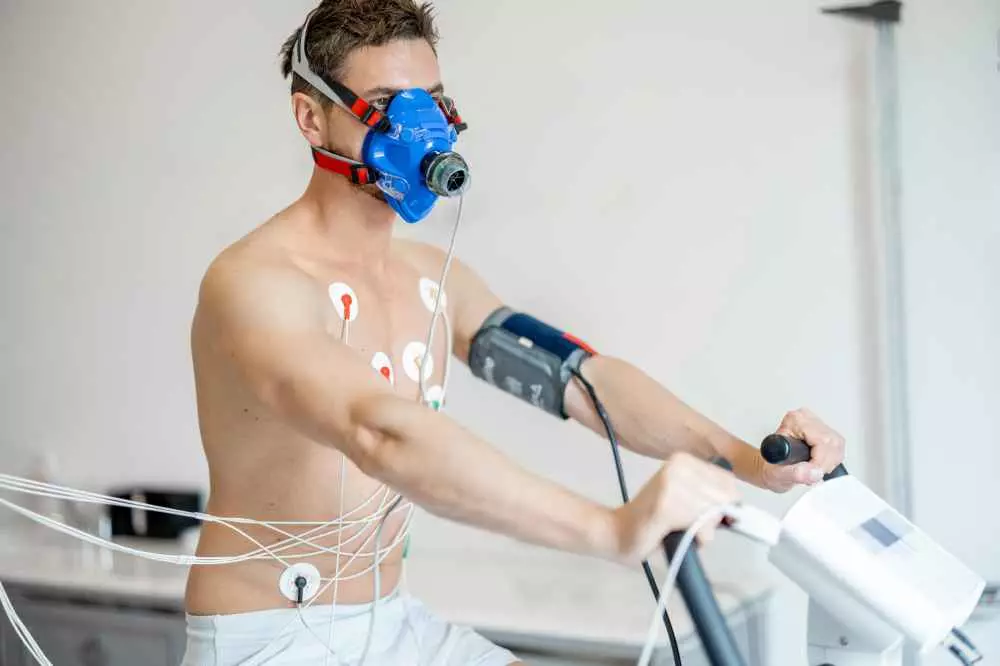What is hyperhomocysteinemia?
Hyperhomocysteinemia is a condition in which the level of homocysteine in the blood is elevated. Homocysteine is an amino acid that is formed by the breakdown of proteins. Normally, it is quickly converted into other chemical compounds, however, when this process does not work properly, homocysteine levels rise. This can lead to serious health problems and particularly affects the cardiovascular system.
The role of homocysteine in the cardiovascular system
Homocysteine plays an important role in amino acid metabolism and affects the cardiovascular system. High levels of homocysteine can negatively affect the health of blood vessels, leading to various cardiovascular diseases such as atherosclerosis, coronary heart disease, stroke and thrombosis.
Scientific studies have shown that hyperhomocysteinemia is an independent risk factor for cardiovascular disease. People with high levels of homocysteine in the body are more likely to develop these conditions than those with normal levels. Therefore, it is important to monitor homocysteine levels and take steps to lower them.

Causes of hyperhomocysteinemia
There are several factors that can lead to hyperhomocysteinemia. Among the most important are:
Vitamin deficiencyMetabolic problemsGenetic disordersImproper dietDeficiency of vitamins such as vitamin B12, folic acid and vitamin B6 can contribute to increased homocysteine levels. These vitamins are necessary for the proper conversion of homocysteine into methionine, another amino acid that is not harmful to the body. If the body does not get enough of these vitamins, homocysteine levels can rise.
Metabolic problems that result from malfunctioning enzymes involved in homocysteine metabolism can also lead to hyperhomocysteinemia. Genetic disorders, such as deficiency of enzymes responsible for homocysteine metabolism, can also affect homocysteine levels in the body.
An unhealthy diet, rich in products high in purines, such as red meat, processed meats, whole milk or eggs, can contribute to increased homocysteine levels. Too much purines in the diet can interfere with the metabolism of homocysteine, leading to elevated levels in the blood.
Effects of hyperhomocysteinemia on the cardiovascular system
Hyperhomocysteinemia has adverse effects on the cardiovascular system and can lead to the development of serious cardiovascular disease. The effects of this condition can include:
AtherosclerosisCoronary artery diseaseThrombosisStrokeThe mechanism by which hyperhomocysteinemia leads to these conditions is not fully understood. However, high levels of homocysteine are associated with changes in the structure of blood vessel walls and an increased tendency to damage them. There is a reduction in vascular elasticity and an increased risk of atherosclerotic plaque formation, which can prevent proper blood circulation.
Hyperhomocysteinemia can also lead to blood clotting disorders and the formation of blood clots, which can block blood flow in blood vessels. As a result, tissue ischemia can occur, which can lead to heart attacks, strokes or embolisms.
How to lower homocysteine levels in the blood?
Lowering homocysteine levels in the blood is important for maintaining cardiovascular health and reducing the risk of cardiovascular disease. There are several effective ways that can help regulate homocysteine levels:
Increasing vitamin intakeChanging your dietPhysical activityAvoiding risk factorsConsultation with your doctorRegular consumption of B vitamins, such as vitamin B12, folic acid and vitamin B6, is important for maintaining normal homocysteine levels. They can be found in a variety of foods, such as legumes, green leafy vegetables, nuts and pork.
Changing to a healthier and more balanced diet can help lower homocysteine levels. It's a good idea to reduce your intake of high-fat and high-purine foods and increase your consumption of fruits, vegetables, whole-grain cereals and low-fat proteins.
Regular physical activity can also help lower blood homocysteine levels. Aerobic exercise, such as jogging, swimming and cycling, can benefit the cardiovascular system and help lower homocysteine levels.
Avoiding risk factors, such as smoking, excessive alcohol consumption and stress, is also important for maintaining a healthy cardiovascular system. These factors can lead to elevated homocysteine levels, so it is worth limiting their impact on the body.
If homocysteine levels in the blood are significantly elevated, it may be necessary to consult a doctor. The specialist can order appropriate tests and recommend vitamin supplementation or drug treatment, depending on the cause and degree of hyperhomocysteinemia.
Considering the impact of hyperhomocysteinemia on the cardiovascular system, it is worth paying attention to your eating habits, lifestyle and regular monitoring of homocysteine levels in the blood. Taking care of your vascular health can help reduce the risk of cardiovascular disease and maintain good health.